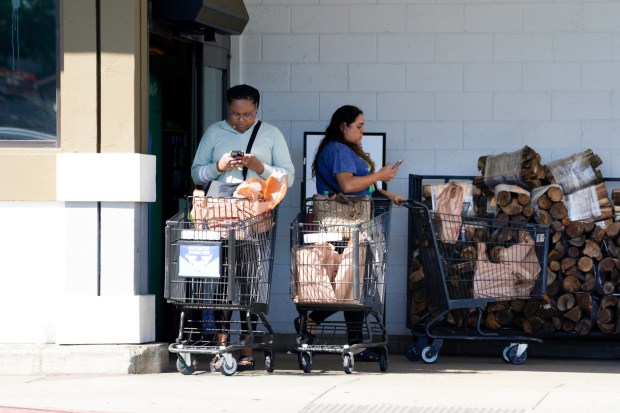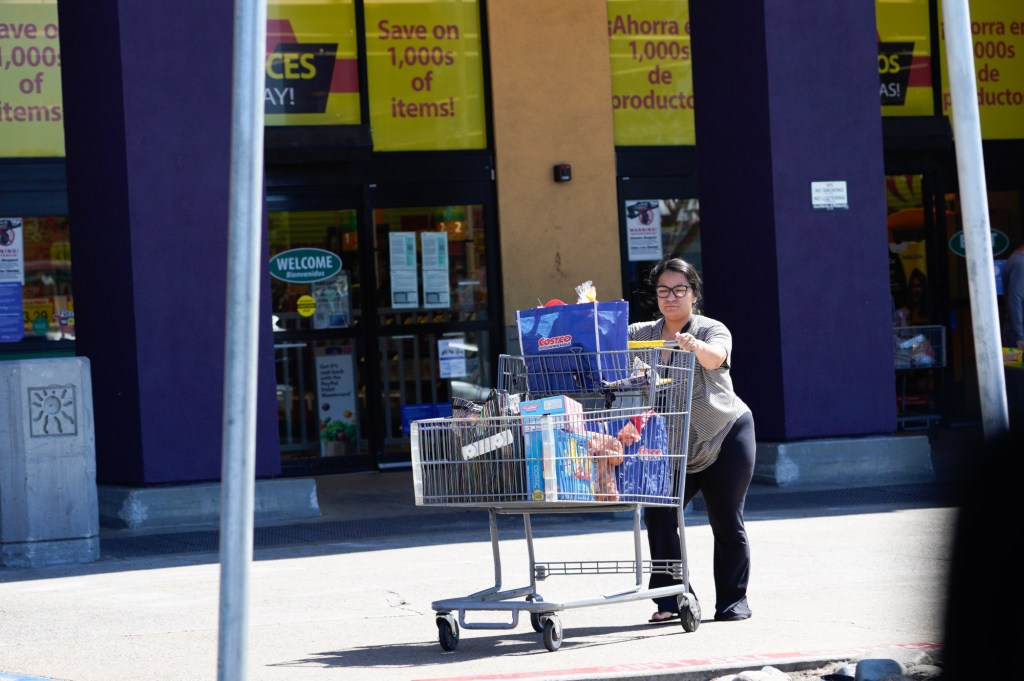Backlash from grocery stores and business groups has prompted San Diego to soften its first-in-the-nation requirement that customers who lack smartphones or internet access be able to use digital-only coupons.
City officials say the retreat is a sensible move that preserves the core elements of the new law while making it more practical, enforceable and easier to understand.
They contend the changes won’t prevent the law from helping seniors, people who aren’t tech-savvy and shoppers who speak limited English get access to the same discounts as smartphone users.
And they say making such a move has become even more important with Republicans in Washington making sharp cuts to the Supplemental Nutrition Assistance Program, or SNAP, also known as food stamps.
“People need to save every cent they can in order to keep a roof over their heads and food on their plate,” said Councilmember Sean Elo-Rivera, who spearheaded the new local law with Councilmember Marni von Wilpert. “San Diegans have this protection that no other consumers across the country will have.”
The changes come after industry complaints that the new law, which the City Council approved in April, lacked clear definitions and created logistical challenges for them, such as requiring individual stores to print digital coupons.
The changes, which the council approved 7-0 on July 1, allow stores to stop short of printing digital coupons as long as they find an alternative way to give all customers identical discounts.
The amended law also specifies that it doesn’t apply to convenience stores, warehouse clubs or pharmacies — only grocery stores.
The law also will no longer apply to digital discounts offered through loyalty programs, subscription services or paid membership programs like Vons for U, Ralphs Rewards, Target Circle 360 and Amazon Prime.
Another key change is that the city has agreed to give grocers written notice of a violation prior to initiating an enforcement action. And grocers get 15 days to fix any violations before they are subject to fines.
The city also delayed the effective date of the new law from July 1 to Oct. 1 to give grocers time to make any necessary changes.
Von Wilpert said the retreat was a smart move.
“This is a great example of the council bringing something back so we can get it right,” she said. “I’m proud to say our San Diego council is working alongside our biz community to do this.”
Von Wilpert said it’s particularly important to get the rules exactly right because San Diego is likely to serve as a national model. Several other cities and states have considered such legislation, but San Diego is the only place to follow through, officials say.
“We’re doing what no one else in the nation has done — making sure we have equal access to online grocery coupons,” she said. “It’s going to be trendsetting in the nation.”
 Late afternoon shoppers leave a local grocery store in Paradise Hills on Tuesday, July 8, 2025, in San Diego. (Nelvin C. Cepeda / The San Diego Union-Tribune)
Late afternoon shoppers leave a local grocery store in Paradise Hills on Tuesday, July 8, 2025, in San Diego. (Nelvin C. Cepeda / The San Diego Union-Tribune)
Industry officials endorsed the compromise.
Patrick Bouteller, speaking for the California Grocers Association, said the revised legislation would still accomplish the city’s goal of expanding access to digital coupons.
“The Grocers Association looks forward to continuing to work with the council on this policy,” Bouteller said.
The San Diego Regional Chamber of Commerce also endorsed the changes.
“We’re confident these amendments make for a stronger ordinance, one that businesses can comply with and implement to provide easier access to discounts for all San Diegans while not disrupting our local economy and avoiding potential negative effects for both employers and employees,” said Justine Murray, the chamber’s executive director for public affairs.
City officials have agreed to review the impacts of the legislation after one year and possibly make more changes.
Supporters of the new law say digital-only coupons have always been unfair, but the need to rein them in has grown more urgent as grocery prices have sharply risen since the COVID-19 pandemic began.
AARP says more than 20 million seniors lack access to digital coupons because of technological challenges.
In addition to requiring stores to extend digital-only deals to everyone, the law will force them to place a sign explaining the new rule in a conspicuous location.
The council must finalize the changes by approving them a second time later this month.
